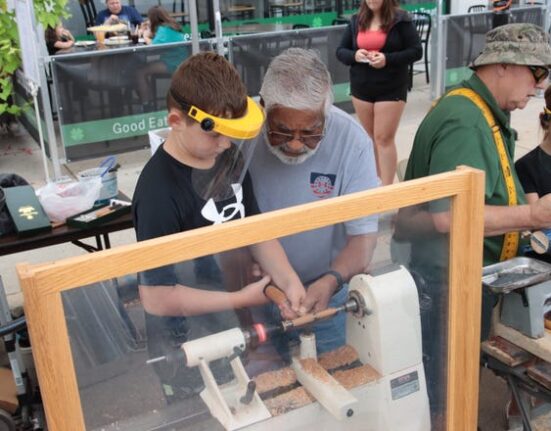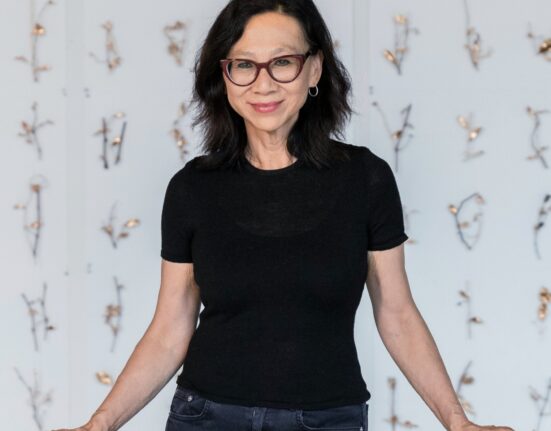New Delhi, An artist should have the freedom to refuse the work they don’t want to do and that’s only possible when they are financially secure, said veteran screenwriter and poet Javed Akhtar on Tuesday highlighting the importance of intellectual property laws.

Akhtar, who also serves as the chairperson of the Indian Performing Right Society , said when the artist is secured, it will reflect on the overall state of the Indian music industry.
The lyricist, credited for songs such as “Dekha Ek Khwaab”, “Ek Ladki Ko Dekha Toh Aisa Laga”, “Ghar Se Nikalte Hi”, and “Dard-e-Disco”, said the shelf life of music is “reducing by the day” all over the world today.
“… It is not heartfelt, it is ordered. They have been told to do this. They don’t have freedom. Wherever they have freedom, they will make this music industry more alive and potent. This can only happen by any kind of good creative work. This can only happen if you give power to the artistes. Whatever he has done, he should be rewarded for that. Economically, financially, he should be secured. He should be able to say no.
“As long as he is straitjacketed in such conditions where he has to survive financially to get two square meals on his table for his family, how can he? There are martyrs who do that but we can’t expect everybody to do that. We need the security of the artist for the security of the music industry. We need strong rules that are implemented on the ground for a healthier music industry,” Akhtar said in his inaugural address of the “IP and Music: Feel the beat of IP” conference organised by FICCI here.
There has to be a balance between creativity and marketing, he added.
“You have to make your market, that’s called marketing. If you are adhering to the market, then what kind of a marketing person are you? There is no creativity in you. No experiment, no courage. How do you make an artist be able to say ‘no, I will not do this. No, I have this right’? That is where the IP laws come in…”
The cinema veteran said when the work is innovative, heartfelt, and has variety it will do “better business”.
“Whatever you do from the depth of your heart, it reaches other people’s hearts. Your dishonesty, cold-blooded attitude towards the work also gets conveyed instinctively,” he added.
According to its official website, IPRS legitimises the use of copyrighted music by issuing music licenses to ‘music users’ and collects royalties for such use, for and on behalf of its members. The body helps authors, composers, and music publishers get their fair share of royalties, while also helping music users play music legally.
When he took over IPRS in 2017, Akhtar said, the annual income at its peak all over the world and India was ₹42 crore. In the last eight years, the income has crossed ₹730 crore.
“It is still a work in progress. In a couple of years, hopefully, we’ll cross ₹1,000 crore,” he added.
Akhtar praised Commerce and Industry Minister Piyush Goyal for “going out of his way” to see that the Copyright Act 2021 is implemented, adding IPRS intends to go back to the government to emphasise that IP laws are “not being implemented on the ground”.
“If these laws are implemented, I see a very bright future for the Indian music industry.”
The event was also attended by Vivek Agarwal, secretary, Union Ministry of Culture, who also announced a series of initiatives aimed at bolstering India’s creative economy, including partnerships with digital streaming platforms.
“We are in discussions with Spotify and YouTube to sign MoUs promoting folk and traditional music that currently lacks commercial market presence,” Aggarwal said.
The ministry is also pursuing Geographical Indication registration for traditional musical instruments and styles.
“Every region of this country has a unique musical setup that deserves protection,” Aggarwal added.
FICCI IPR Committee Chairman Anil Rajput later announced the signing of a Memorandum of Understanding with WIPO to establish an IP for Business Center at FICCI after a decade-long effort.
“This centre will serve as a pivotal resource for Indian businesses, creators, and innovators,” Rajput added.
He also addressed the dual impact of artificial intelligence on the music industry, calling for “protection from negative impacts while building an ecosystem that leverages AI as a positive enabler.”
This article was generated from an automated news agency feed without modifications to text.







